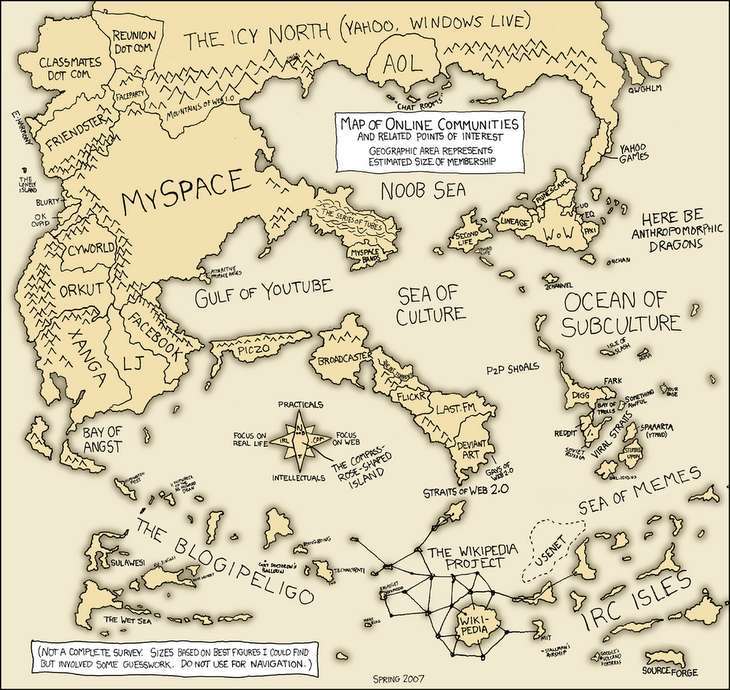“To skilled online players, it’s easier to fake flesh-world personae than to maintain a consistent long-term online presence.” (Mortensen and Walker)
Pros:
• In an Internet setting, the ethnographer can “lurk” and thus be rendered invisible- enhanced objectivity. This position is usually also socially acceptable.
• However, lurking for the sake of ethnography may not be quite as acceptable- some information can only be learnt through the processes of interaction and participation, but this is also often made easier on the Internet.
Cons:
• Community on the Internet as illusory; research proving computer-mediated communication is not rich enough to sustain meaningful relationships.
• Rapidly evolving pace of technology poses many challenges to fixing an ethnographic work to a particularly meaningful time.
• Virtual fieldwork can be exhausting and overwhelming, highly uncertain.
• Blogging poses the challenge of blurring the distinction between the field and the writing up.
Some Questions...
• How to interpret and describe a textual landscape that is constantly expanding and being altered?
• Rather than transcribing and textualizing a community, the ethnographer is instead faced with the problem of justification- what, truly, can we add to something that describes itself better than we could?
• Mediated communication is defined by a distancing variable- in this case, the textuality and lack of presence associated with the Internet. Might this be at the root of such distrust, so many privacy concerns, so much misrepresentation?
Some ideas raised: videotape users, log chat sessions, network diagrams.
• Focus on the debates concerning multiple identities and dynamic communities, rather than traditional over-fetishised notions of community.
• Network ethnography relies on Social Network Analysis techniques (Howard)- the Internet makes this easier- mechanical objectivity.
• Wakeford: 3 types of online textualized activities: information spaces (WWW), communication spaces (listservs), and interaction spaces (AIM, IRC)
• Mason and Dicks: Ethnographic Hypermedia Environment works with notions of authorship, as the reader is granted agency in navigation and restructuring of the hypertext ethnography.
• Making an objective claim relies on knowledge of objects, which is informed by the kinds of claims one wishes to make.Thus, the production of ethnographic knowledge, particularly on the Internet, must be considered in the context of the ethnographer’s assumptions. Basic theoretical assumptions about anthropology may be at stake: society, the self, nature/culture distinctions. The Internet is not exotic, ‘net ethnographers do not hold position or special access…search engines hold more power. So the power of the ethnographer is in the investigatory and intersubjective potentials… telling the stories, explicating vocabularies, delineating new forms of group structure and communication.
---
The blogging is a good start, I like presenting my process and making connections between ideas. However, this article was a bit of a downer. What is the point? Do cultures even exist on the Internet? Perhaps I should discard the notion of "culture" altogether, and concentrate on human interaction. True interaction is embodied, but you don't need a body for that. All you need is an embodied mind, and not even full concentration at that.
A past paper I wrote grappled endlessly with the concept of the "real". Is the Internet "reality". Can computer-mediated communication come close to face to face interaction. Etcetera etcetera. On and on. Making distinctions. Trying to make distinctions. Everything is distinctions, muddy, muddy, muddy distinctions, and this virtual arena is no different. And by that I mean it's just different. I think I'm going to settle on that: this novel form of communication and connection. Not culture, but communitas.
I think I should make a little project of creating a network diagram, and see where that leads me... maybe overlapping multiple communities/multiple identities...
Subscribe to:
Post Comments (Atom)






No comments:
Post a Comment